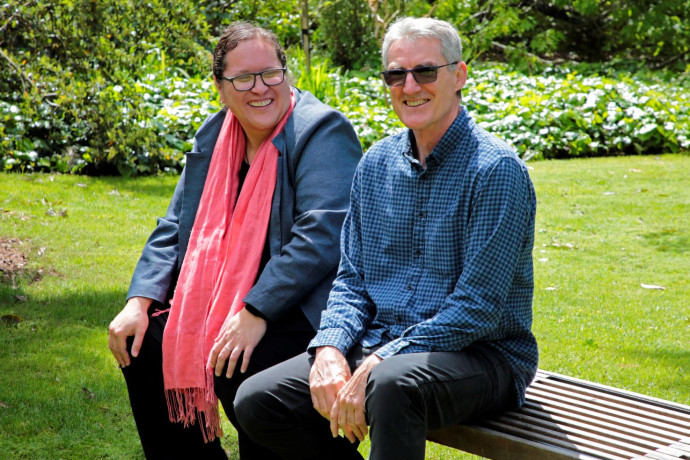Learning with Indigenous communities through archaeology, philosophy, history, and mātauranga Māori

Professor Thegn Ladefoged and Associate Professor Krushil Watene from Waipapa Taumata Rau – the University of Auckland will explore how Indigenous communities can flourish amid unprecedented change
In a rapidly changing world, many communities in Aotearoa are facing profound ecological, economic, and social challenges. But for Ngāti Manu, a hapū of Te Pēwhairangi (Bay of Islands), navigating severe disruption and pathways for adaptation is nothing new. Immense change has been reshaping their lives for generations: forests and gardens turned into European farms and pastures, traditional exchanges became market-driven trade, and local territorial rivalries gave way to existential struggles for sheer tribal survival.
Professor Thegn Ladefoged and Associate Professor Krushil Watene (Ngāti Manu, Te Hikutu, Ngāti Whātua o Orākei, Tonga) have been awarded a Marsden Fund Standard grant to seek to understand how Ngāti Manu sustained collective wellbeing and continuity amid such transformation.
Drawing on an innovative mix of archaeology, philosophy, history, and the mātauranga of Ngāti Manu, the project will trace the hapū’s journey from pre-European to post-contact eras across significant sites and landscapes. Partnering closely with Ngāti Manu, the team of academic and community researchers will map tribal relationships and responsibilities, explore social practices and institutions, as well as digitally reconstruct heritage landscapes and pivotal historical episodes.
By creating digitally immersive reconstructions of ancestral landscapes, the Marsden project will make the past accessible in engaging new ways, provide powerful resources for education and cultural revitalisation, as well as stimulate economic development and resilience through community-led tourism. This transdisciplinary and transcultural scholarship will deepen our understanding of Indigenous resilience and adaptive capacity, offering a blueprint for thriving futures in Aotearoa New Zealand and other global contexts where communities face intersecting disruptions.

Members of Ngāti Manu and the research group on Ōtuihu Pā during a reconnaissance survey of the site (photo supplied)
